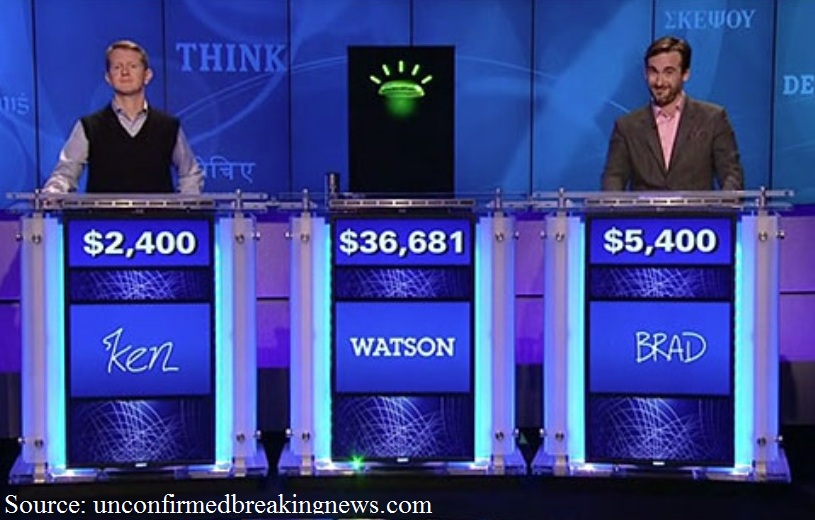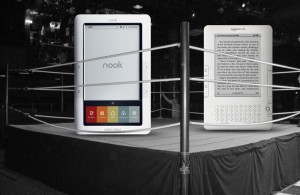There’s something addictive about Jeopardy!. It lacks the cheesy glitz of Wheel of Fortune and the gimmicky draw-in of Are You Smarter than a 5th Grader?, and yet, I can never help but be amused by the obscure questions – ranging from pop culture to geography – or the gentlemanly, ubiquitous presence of host Alex Trebek. Whatever the intangible quality that attracts viewers, Jeopardy! is generally considered the intellectual paragon of game shows (which is not, admittedly, saying much); with this reputation, the show was the ideal venue for IBM to showcase its latest product development: a supercomputer named Watson.

Jeopardy!’s most famous winners, Ken Jennings and Brad Rutter, were Watson’s human punching bags opponents. The recent three-night spectacle played out as one would imagine: Watson’s logarithm-enhanced brain triumphed over the more common sense-based knowledge of its human competitors, albeit with the occasional glitch.

More interestingly, IBM logos and propaganda were prominently featured, with commentaries from the engineers who designed Watson accounting for half of the three 30-minute shows. While not exactly market testing, IBM used Jeopardy! to provide a simplified explanation of its innovative product in a way that even I – a near-technophobe who still struggles with the complexity of text-messaging – found understandable. IBM clearly invested a significant amount of time and money on simplifying Watson’s design; on Jeopardy!, the so-called “learning computer” appeared as a human-sized, rectangular avatar and spoke in a (near-comical) simulated voice.
IBM took immediate advantage of the publicity garnered by Watson’s win. According to an article in the Vancouver Sun, the company recently revealed that Watson is intended to assist hospital staff in diagnosing patients with unprecedented efficiency, in addition to speeding up “everything from the checkout lines to search engines.” And after that, who knows? World domination, maybe?

